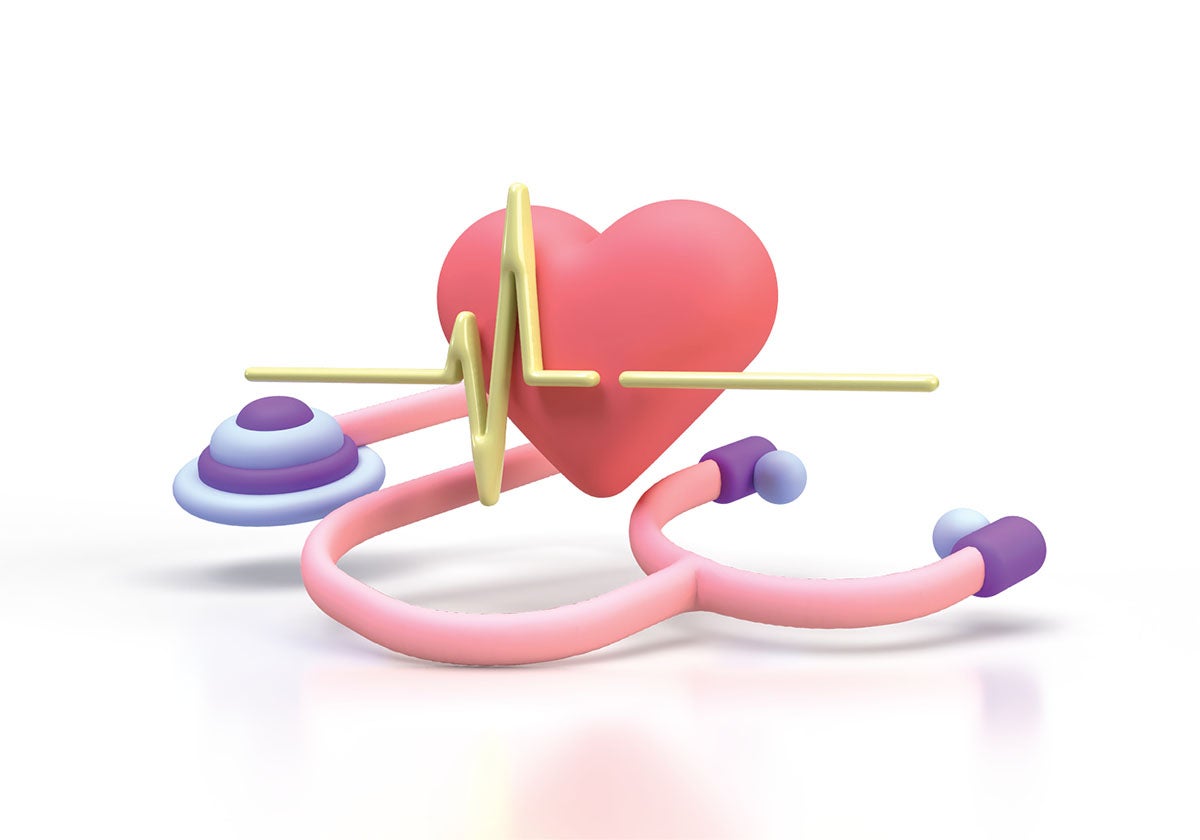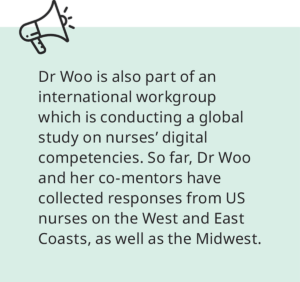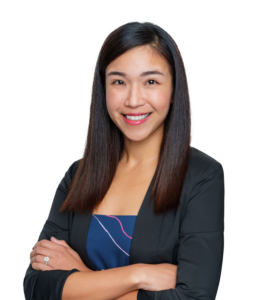
What can ChatGPT do for hard-pressed nurses? Does AI have the potential to transform Nursing? Dr Brigitte Woo, Research Fellow at Alice Lee Centre for Nursing Studies (NUS Nursing), National University of Singapore Yong Loo Lin School of Medicine, and the 2024–25 Singapore Harkness Fellow, intends to find out.
Nursing workforce development and the training and education of advanced practice nurses (APNs) are Dr Woo’s research interests. But when applying for the prestigious Harkness Fellowship1, she decided to go for a ‘moonshot’ research idea—to explore the use of artificial intelligence (AI) such as large language models (LLMs) to streamline the Nursing documentation process.
Dr Woo said, “Having been an intensive care unit (ICU) nurse, I had first-hand experience with the extensive documentation required for each patient. In hospital inpatient settings like the medical surgical wards, complex care coordination (involving various members of the care team) also makes documentation a complicated affair. Given how LLMs like ChatGPT have become such a hot topic these days, I wanted to explore how we can tap on them to lighten nurses’ documentation burden.”
Testing the Waters
As part of her fellowship as the 2024–25 Singapore Harkness Fellow, Dr Woo is currently spending a year at the University of Pennsylvania School of Nursing (Penn Nursing)—where she will be conducting the research.
She said, “My plan is to first conduct a series of foundational studies to inform the design of our LLM prototype, starting with surveys of nurses in the Penn Medicine health system (kind of like our local healthcare clusters) on their perceptions and acceptance of ChatGPT.” The survey aims to assess nurses’ knowledge of ChatGPT and acceptance level of using it in their Nursing practice. Dr Woo also chose to use ChatGPT as a stand-in for LLMs because the public is familiar with the tool.
Concurrently, she is carrying out qualitative interviews with nurses in the Hospital of the University of Pennsylvania (a hospital within the Penn Medicine health system) to understand their existing documentation burden, as well as attitudes towards adopting LLMs for their workflows. At present, Dr Woo is recruiting for both segments.
Still in the planning stages is a time-motion study—where Dr Woo intends to shadow ICU nurses for their entire shift. She explained, “This is so that I can observe every single thing related to documentation that nurses do throughout their shift—including their documentation patterns and length of time needed. With that data, it will be easier for us to pinpoint where LLMs can be introduced into the Nursing workflow, and how they can best help nurses with documentation.”

Debugging the Challenges
However, the process has come with its fair share of trials. Dr Woo said, “For a good three months, I met with Nursing leaders almost every week, trying to get their buy-in and help with study approval and recruitment. Ethics approval also took a few months to go through.”
Administrative hurdles such as ethics approval and stakeholder buy-in are not uncommon for healthcare research—even in Singapore. However, Dr Woo reflected that her unfamiliarity with the US system and processes there meant the process took longer. “I’ve worked as a researcher in Singapore for quite a few years and have built rapport with clinicians and Nursing leaders. Here in the US, I am starting from ground zero. No one really knows me since I’m from Singapore—and both my fellowship mentors are also quite new to Penn Nursing.”
On the other hand, Dr Woo appreciated that Nursing leaders—both in Singapore and the US—are receptive to ideas and initiatives aimed at improving Nursing workflows. “Given how the Nursing workforce faces the same issues of retention, burnout and heavy workload everywhere, it’s great having support from the leadership,” Dr Woo said.
Yet another challenge—melding Nursing research with emerging technology such as AI and LLMs. Dr Woo said, “As a novice to LLMs and machine learning (ML), even reading research papers was a difficult process at first. LLMs, Nursing informatics and data science—were not topics I’m familiar with.” To build her knowledge, Dr Woo audited a data science course at Penn Nursing, and her Penn Nursing mentors recommended several relevant seminars.
Three months on, “I feel like I’ve learnt so much about LLMs and ML—these days I understand discussions on these topics and feel more confident engaging in conversations about them,” Dr Woo said. An unexpected reward, her newfound knowledge has added a new dimension to her research on APN training and education and Nursing workforce development.
Dr Woo explained, “Increasingly, I’m looking at solving challenges that the Nursing workforce and APNs face with a different approach—how we can use data science to evaluate APNs’ roles or ML to support nurses in the clinical setting. I see a real possibility—and have started brainstorming ideas, which I intend to research further when I return to Singapore. Hopefully, I can come up with some creative and effective solutions.”
Decoding the Dilemma
Meanwhile, although it is still early days, she is also contemplating the potential outcomes of her project—specifically, what happens after LLMs help nurses successfully reduce their documentation burden. “Most of us only think about the benefits of using AI to help with our work. But attending the seminars on AI—challenged my thinking about the process,” she reflected.
“For example, what happens after we successfully cut down time used for documentation? If the ‘extra’ time means that nurses have to care for more patients—it could lead to more burnout, which brings us back to square one,” Dr Woo said. There’s also the problem of using the writing process to think—“As a nurse, I used the documentation process to think through my observations and care plan. If this step were outsourced to AI—how do novice nurses learn how to think critically?”
These are all questions that were far from Dr Woo’s mind when she first wrote her proposal. “This process has really opened my mind—to the fact that when I design a solution, I have to think about the implications and repercussions. For now, I don’t have the answers yet—but I hope to find out,” she concluded.

1 Read more in NUrSing’s December 2024 issue: https://medicine.nus.edu.sg/nursing/vitals/research-news/december-2024/nus-nursing-alumni-land-coveted-overseas-fellowships



